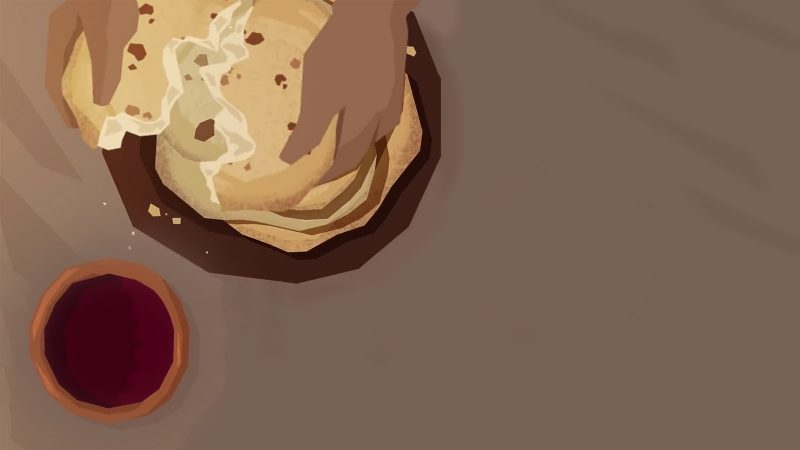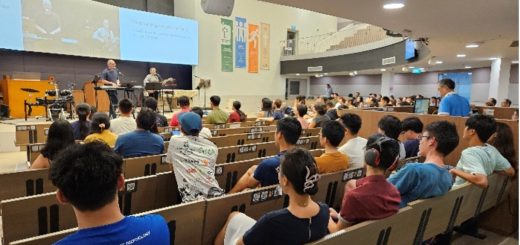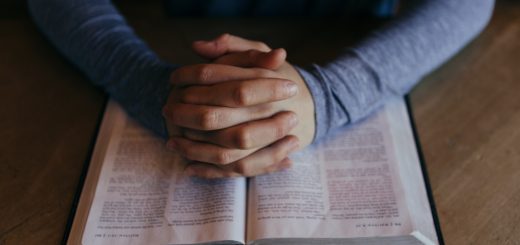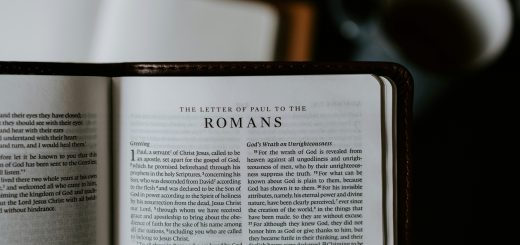The Sign of Holy Communion

When does a sign lose its significance?
Jesus gave His church 2 ‘rituals’ or sacraments to practice until the day He returns – namely Baptism and Holy Communion. Those of us from the Reformed traditions call these practices signs.
We call them signs, because they are meant to point to something. They are meant to teach us about the work of our Lord Jesus Christ on the cross and show us how it is to be applied to us. The preached Word of God from the pulpit is the gospel in audible form, and the sacraments are the gospel presented to us in physical, visible and personal forms.
Water baptism represents God’s willingness to include us into His family – it is like an adoption ceremony… the pastor lays his hands on the recipients’ head and proclaims, in God’s name, that this person is now God’s child, whom He loves.
Holy Communion represents the ongoing family meal with Jesus. Again, portraying Jesus, the pastor is at the head of the table and feeds the congregation by distributing food to the gathered body of believers. The family receives spiritual food – Christ’s body and Christ’s blood. Through this action the believers experience God’s continuing presence – personally and corporately. This is what the Reformers Luther and Calvin stressed – as the family receives the bread and cup from the leader, we get a sense that God is present with us…
When we switch to virtual church, thankfully because of technology, we are still able to hear the proclaimed Word of God. But does it make sense to have a virtual baptism or a virtual communion meal? Would you have a meal over zoom with your friend? Maybe – though it is a bit weird. And when we talk about livestream – how do we know who we are eating with?
So these aspects must be considered seriously – in a virtual church, how can we sense Jesus’ present with us – if we don’t receive the bread and cup? And how do we experience the church family gathered when we don’t know who we are eating with? These are questions that every pastor must wrestle with in this season – as we are ordained specifically to administer Word and Sacrament.
My first thought was if there was a way that we could safely distribute the elements to you… we could firstly still have that tiny sense that Christ is feeding us … and secondly we would know who we are eating with – as only the baptized family of God would receive the bread and cup.
However, since delivery is not possible anymore… then what can we do? Some suggested preparing our own elements at home. At first glance that seems plausible, but if we think it through – there is no sense of receiving from Christ, and there is no way to know who we are eating with. Thus, in that scenario does the sign of Holy Communion still retain its significance? Does doing it that way still communicate that we are the family of God gathered to be fed by Christ? I hope you can understand the complexity of the issue.
Just like you cannot anyhowly preach a sermon… that could be extremely damaging. You cannot anyhowly practice the sacraments – it would be equally damaging. We need to think this through without making quick changes purely based on convenience. And as such we have decided to suspend Holy Communion, until such time we can carry out the sacrament in a proper manner.
I’m sure there are those who disagree and have alternative views… but please trust that we the pastors are acutely aware of the charge for us to remain faithful to the gospel and to minister to our people. Please pray with and for us. None of this is easy. In fact, it is exhausting.
In the meantime, if there is no Holy Communion what shall we do? Perhaps God is calling us to a season of lament rather than celebration, a season of fasting rather than feasting, a season of repentance as we heard in last week’s sermon. Let us use this scattered time as an occasion to pray, confess our sins and long for the day that God heals our land once and for all, and gathers us back together as His church, in this life and especially in eternity. Amen.
Ps Dev Menon & Quek Tze-Ming










